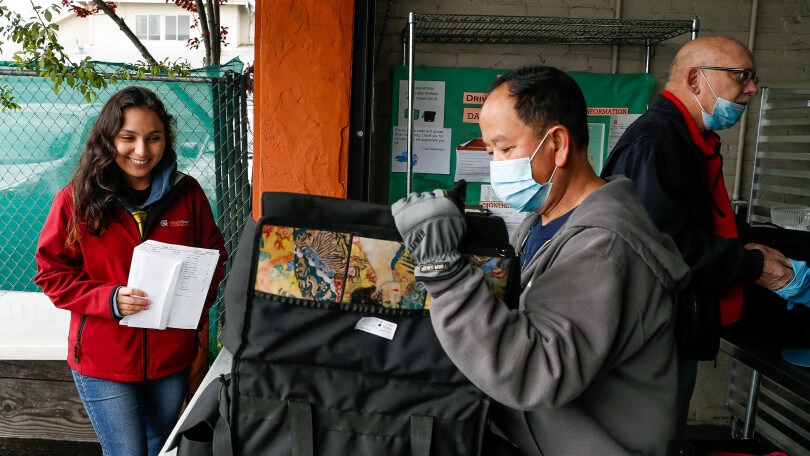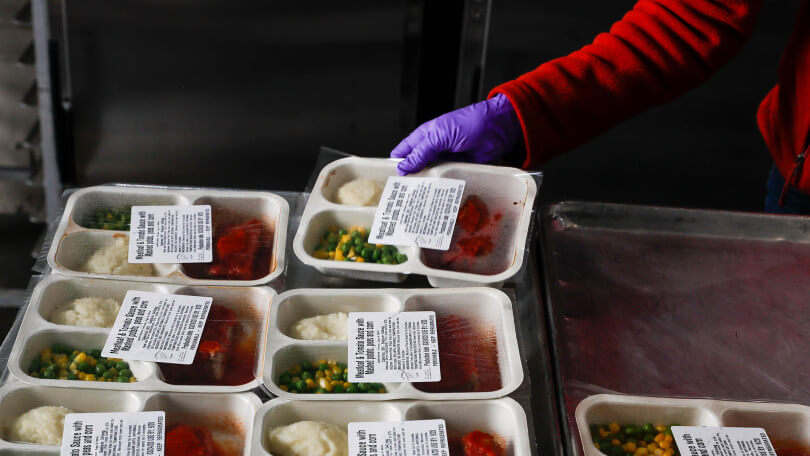Families across the country are facing significant challenges as they work to keep people safe and healthy during the COVID-19 pandemic. Unfortunately, for many families, these health concerns are coming hand-in-hand with an unfamiliar worry: food insecurity. Lost jobs, reduced incomes and loss of access to school lunches have left many struggling with having enough to eat. Across the country, local nonprofits are stepping up with expanded services and innovative approaches to meet the sudden surge of need in their communities — and CVS Health is joining them to help. CVS Health and The CVS Health Foundation have provided more than $900,000 to organizations in local communities working to provide food to vulnerable populations, especially school-aged children, seniors, and the uninsured.
A $250,000 grant to Feeding America supported efforts to pack and deploy emergency food boxes to high-need areas across the country, including Florida, Georgia, Louisiana, New York and Washington. These boxes will help local food banks provide children, families, and seniors with the food and nutrition they need, even as the need for food assistance increases.
Many other organizations have developed entirely new approaches to respond to the unique needs created by COVID-19 and CVS Health is proud to support this work in the communities we serve. In Kansas City, Missouri, Feed Northland Kids received a grant of $20,000 to develop Community Food Kits. With shelf-stable foods, these kits are provided to families through in-school pantries, which will help address food insecurity among school-age children. And in Austin, Texas, a $25,000 grant to the Central Texas Food Bank helped the organization shift to a drive-through model to allow clients to still receive food while ensuring safety for clients, staff, and volunteers. Safety is a top concern at many nonprofits; Community Servings in Jamaica Plain, Massachusetts, used a $15,000 grant to streamline operations and continue to distribute more than 2,000 food boxes in April, even without the assistance of the as many as 75 volunteers they previously relied on each day.
The COVID-19 pandemic has created an unprecedented need and continues to present unique challenges in meeting that need. At CVS Health, we’re proud to support the local organizations that are rising to the challenge to continue to feed their communities.

